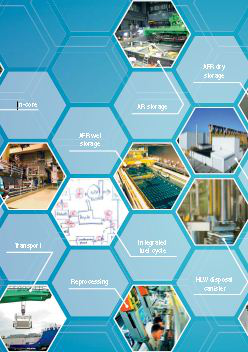Speaker
Dr
Bernhard Droste
(BAM Federal Institute for Materials Research and Testing)
Description
Abstract: When storage of spent nuclear fuel (SNF) is done in dual purpose casks (DPC), the effects of aging on safety relevant DPC functions and properties have to be managed in a way that a safe transport after the storage period of several decades is capable, and can be justified and certified permanently throughout that period. The effects of aging mechanisms (like e.g. radiation, different corrosion mechanisms, stress relaxation, creep, structural changes and degradation) on the transport package design safety assessment features have to be evaluated. The consideration of these issues in the DPC transport safety case will be addressed. Special attention is given to all cask components which cannot be directly inspected or changed without opening the cask cavity, what are the inner parts of the closure system and the cask internals, like baskets or spent fuel assemblies. The design criteria of that transport safety case have to consider the operational impacts during storage. Aging is not subject of technical aspects only, but also of “intellectual” aspects, like changing standards, scientific/ technical knowledge development and personal as well as institutional alterations. Those aspects are to be considered in the management system of the license holders and in appropriate design approval update processes. The paper addresses issues which are subject of an actual IAEA TECDOC draft “Preparation of a safety case for a dual purpose cask containing spent nuclear fuel”.
Country/ int. organization
Germany
Author
Dr
Bernhard Droste
(BAM Federal Institute for Materials Research and Testing)
Co-authors
Dr
Annette Rolle
(BAM)
Frank Wille
(BAM)
Dr
Steffen Komann
(BAM)
Mr
Sven Schubert
(BAM)
Mr
Ulrich Probst
(BAM)

